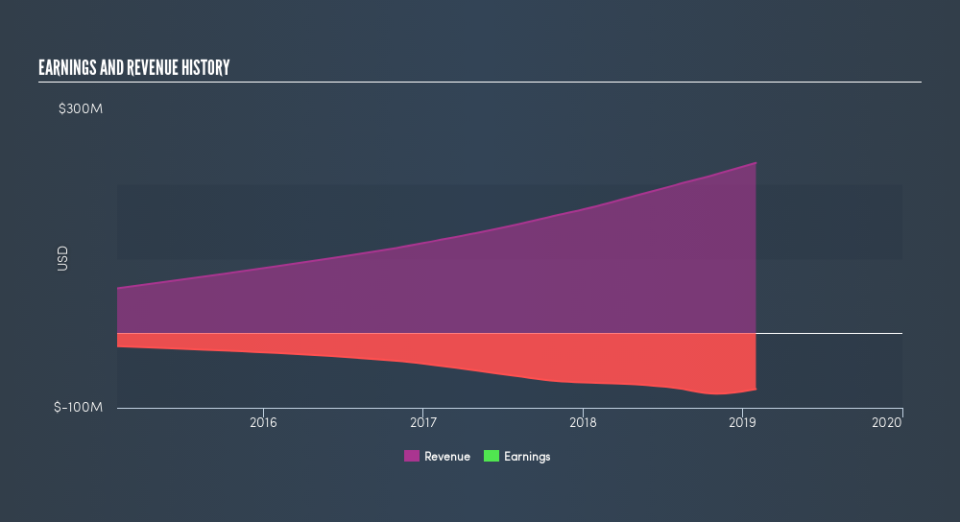Before You Buy Yext, Inc. (NYSE:YEXT), Consider Its Volatility

Want to participate in a short research study? Help shape the future of investing tools and you could win a $250 gift card!
Anyone researching Yext, Inc. (NYSE:YEXT) might want to consider the historical volatility of the share price. Modern finance theory considers volatility to be a measure of risk, and there are two main types of price volatility. The first category is company specific volatility. This can be dealt with by limiting your exposure to any particular stock. The second sort is caused by the natural volatility of markets, overall. For example, certain macroeconomic events will impact (virtually) all stocks on the market.
Some stocks see their prices move in concert with the market. Others tend towards stronger, gentler or unrelated price movements. Some investors use beta as a measure of how much a certain stock is impacted by market risk (volatility). While we should keep in mind that Warren Buffett has cautioned that 'Volatility is far from synonymous with risk', beta is still a useful factor to consider. To make good use of it you must first know that the beta of the overall market is one. Any stock with a beta of greater than one is considered more volatile than the market, while those with a beta below one are either less volatile or poorly correlated with the market.
See our latest analysis for Yext
What YEXT's beta value tells investors
Zooming in on Yext, we see it has a five year beta of 0.88. This is below 1, so historically its share price has been rather independent from the market. If history is a good guide, owning the stock should help ensure that your portfolio is not overly sensitive to market volatility. Beta is worth considering, but it's also important to consider whether Yext is growing earnings and revenue. You can take a look for yourself, below.
How does YEXT's size impact its beta?
Yext is a fairly large company. It has a market capitalisation of US$2.4b, which means it is probably on the radar of most investors. It is a little unusual to see big companies like this trade on low beta values. Oftentimes there is some other clear influence on the share price, overshadowing market volatility.
What this means for you:
One potential advantage of owning low beta stocks like Yext is that your overall portfolio won't be too sensitive to overall market movements. However, this can be a blessing or a curse, depending on what's happening in the broader market. In order to fully understand whether YEXT is a good investment for you, we also need to consider important company-specific fundamentals such as Yext’s financial health and performance track record. I highly recommend you dive deeper by considering the following:
Future Outlook: What are well-informed industry analysts predicting for YEXT’s future growth? Take a look at our free research report of analyst consensus for YEXT’s outlook.
Financial Health: Are YEXT’s operations financially sustainable? Balance sheets can be hard to analyze, which is why we’ve done it for you. Check out our financial health checks here.
Other High-Performing Stocks: Are there other stocks that provide better prospects with proven track records? Explore our free list of these great stocks here.
We aim to bring you long-term focused research analysis driven by fundamental data. Note that our analysis may not factor in the latest price-sensitive company announcements or qualitative material.
If you spot an error that warrants correction, please contact the editor at editorial-team@simplywallst.com. This article by Simply Wall St is general in nature. It does not constitute a recommendation to buy or sell any stock, and does not take account of your objectives, or your financial situation. Simply Wall St has no position in the stocks mentioned. Thank you for reading.

 Yahoo Finance
Yahoo Finance 
